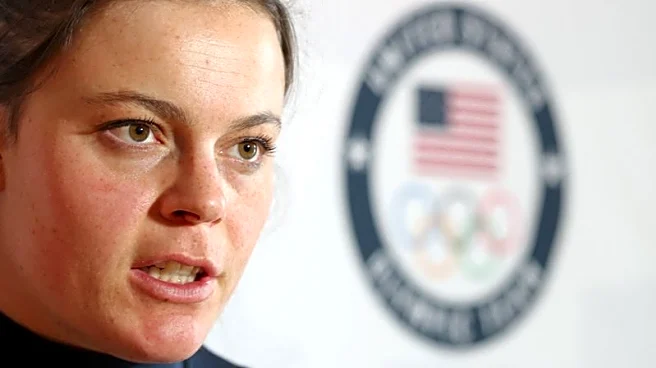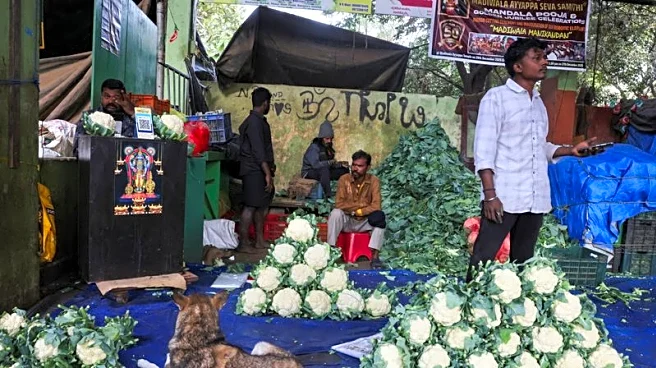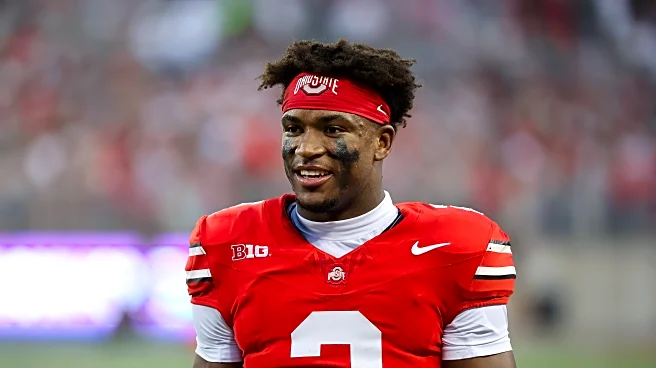What's Happening?
A column by Miss Manners has addressed a family dispute regarding the use of the title 'Nonna' for a grandfather's girlfriend. The issue arose when a grandmother discovered that her grandchildren were
referring to her ex-husband's long-term girlfriend as 'Nonna,' a term traditionally used for grandmother. Despite the grandmother's discomfort, Miss Manners points out that etiquette does not allow her to dictate what her grandchildren call others, especially since the girlfriend is not a biological relative. The column highlights the complexities of family titles and relationships, particularly in cases of divorce and remarriage.
Why It's Important?
This situation underscores the evolving nature of family dynamics in modern society, where traditional roles and titles are increasingly challenged. As families become more complex due to divorce and remarriage, the definition of familial roles can become contentious. The dispute over the title 'Nonna' reflects broader societal changes in how families are structured and the importance of communication and respect in navigating these changes. It also highlights the role of etiquette in managing personal relationships and the limitations of imposing traditional norms in non-traditional family settings.
What's Next?
The grandmother may need to engage in further discussions with her family to address her concerns and find a resolution that respects all parties involved. This could involve setting boundaries or finding alternative titles that honor the existing family structure while acknowledging the girlfriend's role. As family dynamics continue to evolve, similar disputes may arise, prompting families to reconsider traditional titles and roles. The situation may also encourage broader conversations about the role of etiquette in modern family relationships.
Beyond the Headlines
The dispute over the title 'Nonna' raises questions about the cultural significance of family titles and the emotional impact of these labels on individuals. It highlights the need for sensitivity and understanding in family relationships, particularly in blended families. The situation also reflects the broader societal shift towards more inclusive definitions of family, where non-biological relationships are increasingly recognized and valued.










